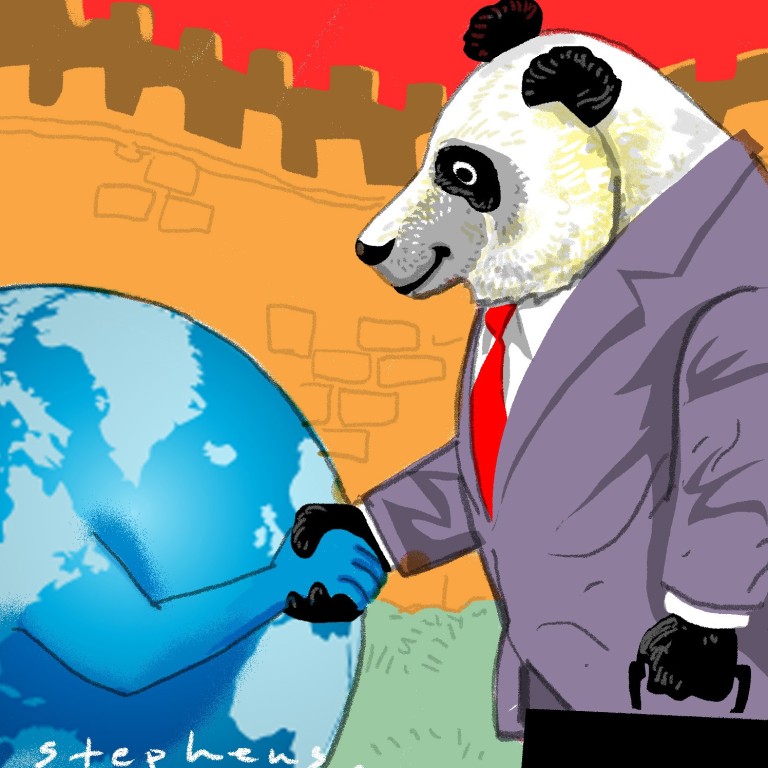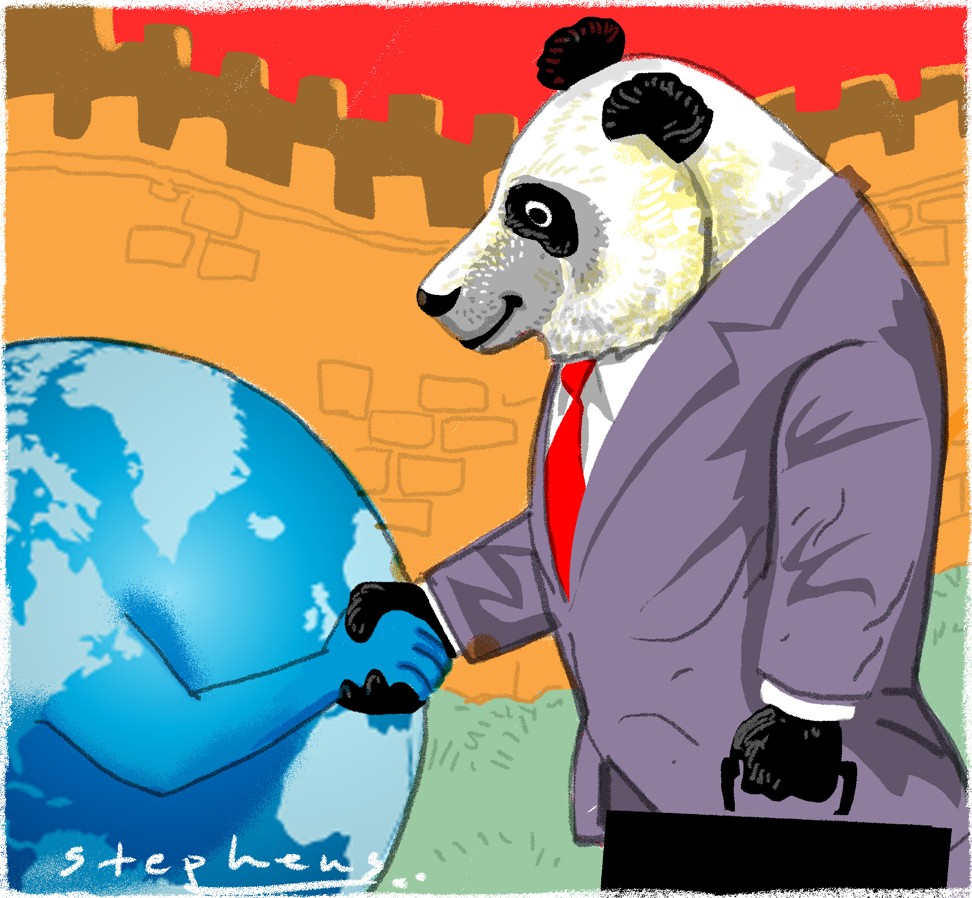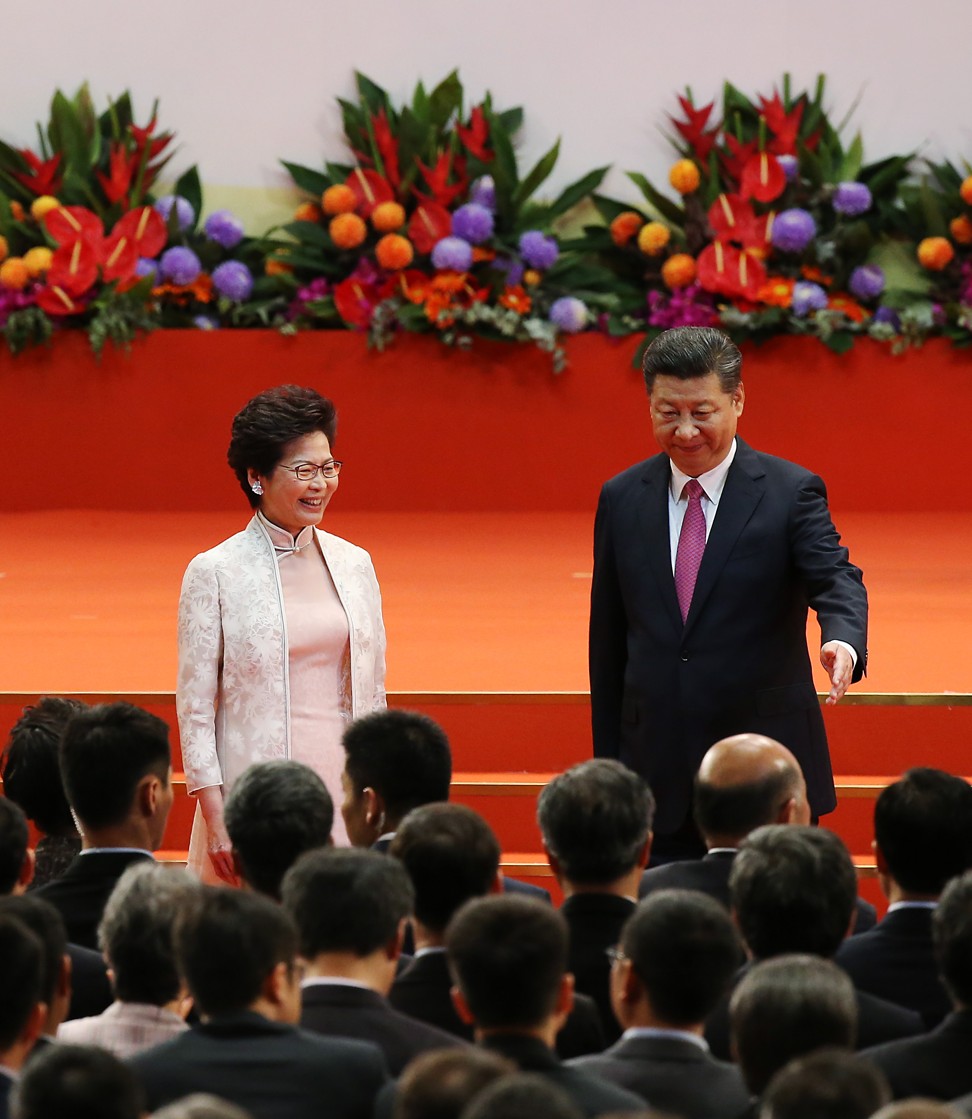
Five ways China will be an engine for global growth in the ‘new era’, with Hong Kong a key component
Xie Feng says sustained reform and the vision of a new socialist era in China, along with its belt and road, and Greater Bay Area plans, will take development to new levels and create historic opportunities for other economies to prosper

Guided by the congress, China will become a great modern socialist nation, bringing historic opportunities to countries and business communities around the world.
What is the driving force for China’s economy? It is reform.
Xi Jinping outlines China’s future at the 19th Party Congress
China will implement the new vision of development, which emphasises innovative, coordinated, green and open development, with the fruits shared by all.
We will promote supply-side structural reform, and launch a series of substantive reform proposals in areas including the market, fiscal affairs, taxation, financing, investment and state-owned enterprises.
China’s focus is no longer on growth at any cost
China’s economy will give rise to greater dividends, and serve as the engine and stabilising anchor for the global economy. As the proverb goes, “If you want to go fast, walk alone; if you want to go far, walk together”. All countries are welcome to board the express train of China’s development.
Arctic link reveals the full scope of China’s belt and road ambitions
The government will adopt high standards in investment and trade facilitation policies, and implement pre-established national treatment [where foreign investors are guaranteed the same treatment as domestic ones, even before they enter the market] and a negative list for foreign capital [that specifies what cannot be done, meaning all else is possible] across the board.
The business environment in China will become more open, transparent, law-based and predictable, and is estimated to attract US$600 billion in foreign direct investment over the next five years.
World leaders arrive in Beijing for the Belt and Road Forum in May
Third, the Chinese people’s aspirations for a better life will bring enormous market opportunities. The principal problem of Chinese society has been the contradiction between unbalanced and inadequate development, and people’s ever-growing needs for a better life.
Significance of the ‘Belt and Road Initiative’ goes beyond trade
China will increase and improve its mix of imports to better meet people’s needs. According to e-commerce giant Alibaba [owner of the South China Morning Post], this year’s Singles’ Day on November 11 witnessed record online sales, of US$25.3 billion. It is estimated that, in the next five years, China will import US$8 trillion worth of goods, and over 700 million Chinese tourists will head abroad, which will generate enormous business opportunities.
Singles’ Day sets new record
Starting from next year, China will host an International Import Expo, which will serve as a platform for global goods to enter the country. The first expo will be held from November 5 to 9, 2018, in Shanghai. Exhibitors from over 100 countries and regions, as well as 150,000 domestic and foreign buyers, are expected to attend.
Fourth, Chinese companies “going global” will bring opportunities for common development. Despite declining outflows of global foreign direct investment, China’s overseas direct investment reached a record high of US$196 billion in 2016, a year-on-year increase of 34.7 per cent, accounting for 13.5 per cent of the global total.
Chinese-invested enterprises operate in 190 countries and regions, with total assets of US$5 trillion. On November 3, the Alibaba Group inaugurated its first overseas Electronic World Trade Platform, in the Digital Free Trade Zone of Malaysia. It will bring small and medium-sized enterprises in Malaysia to the world stage.
Alibaba’s electronic trading hub to help SMEs goes live in Malaysia
In “going global”, Chinese enterprises will bring capital, production capacity, hi-tech and development experience to countries that need them. They will cooperate with local counterparts, and achieve mutual development by drawing on each other’s strengths.
Finally, our firm and long-term commitment to “one country, two systems” will bring opportunities for tripartite cooperation between the mainland, Hong Kong and countries along the belt and road.
The report to the party congress incorporated “one country, two systems” into the basic policy on upholding socialism in China in the new era. It also included strategic plans on Hong Kong’s integration into the national development and on all-round cooperation between Hong Kong and the mainland. These messages are in line with the speeches made by President Xi during his visit to Hong Kong in July.
Xi Jinping gets credit for solving Hong Kong’s ‘unprecedented challenges’

The Commissioner’s Office will continue to safeguard state sovereignty, security and development interests, promote Hong Kong’s external exchanges and cooperation, and uphold the lawful rights and interests of Hong Kong compatriots overseas.
As China reforms under Xi Jinping, Hong Kong should look across the border for future plans
We will mobilise diplomatic resources, and work with more mainland provinces, the Hong Kong SAR, and the consular corps, business chambers, multinationals and media agencies in the city.
Together, we will set up more cooperation platforms, facilitate more practical cooperation projects, and work for win-win outcomes by drawing on each other’s strengths.
How Hong Kong can help the Greater Bay Area become a landmark in China’s reform process
It is our hope that Chinese and foreign companies will seize these opportunities and seek more, from the fast development of the mainland and Hong Kong, as well as from their closer integration.
Early participation will ensure an early harvest.
Xie Feng is commissioner of the Ministry of Foreign Affairs of the People’s Republic of China in the Hong Kong Special Administrative Region

